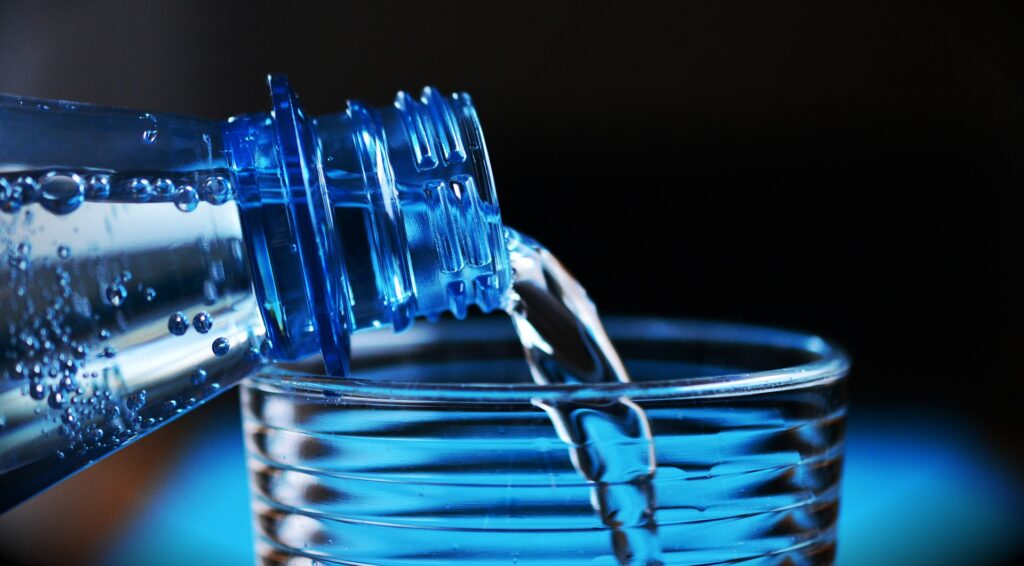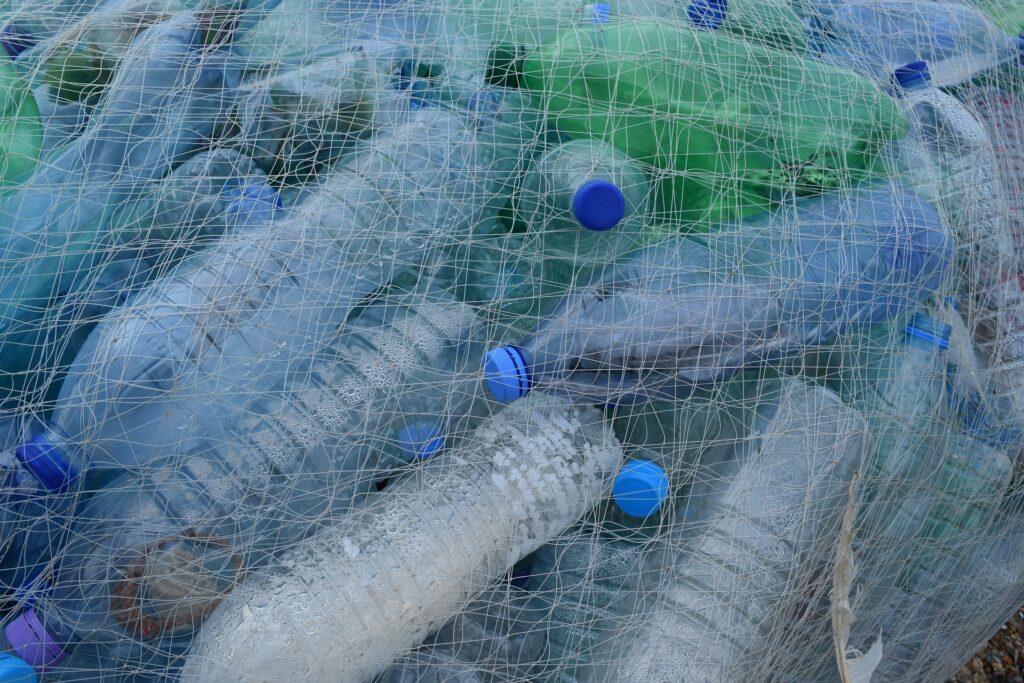Do you Know Reusable water bottles bacteria Can holds 40,000 times More Bacteria

Resuable Water Bottles holds 40,000 times More Bacteria than toilet seat, study finds.
Reusable water bottles can harbor bacteria if not cleaned properly or frequently. Reusable water bottle Bacteria thrive in moist environments and can multiply rapidly in leftover water or other liquids that remain in the bottle. This can lead to unpleasant odors, tastes, and even illness if harmful bacteria are present.
1.Can Bacteria grow in Reusable water bottles?
Yes, bacteria can grow in reusable water bottles if they are not cleaned properly or frequently. Reusable water bottles Bacteria thrive in moist environments and can multiply rapidly in leftover water or other liquids that remain in the bottle. This can lead to unpleasant odors, tastes, and even illness if harmful bacteria are present. To prevent Reusable water bottles bacterial growth, it is important to wash reusable water bottles with hot, soapy water after each use and to allow them to dry completely before using Reusable water bottles bacteria again. Additionally, using a Reusable water bottles bacteria bottle brush or other cleaning tools can help to thoroughly clean hard-to-reach areas. Regularly replacing water bottles or their parts, such as straws or lids, can also prevent bacterial buildup.
2.How Dangerous are these bacteria present on Reusable bottles?
The danger level of Reusable water bottles bacteria present on reusable water bottles depends on the type of bacteria and the amount present. While many bacteria are harmless or even beneficial, some can cause illness or infections. The risk of illness fromReusable water bottles bacteria on water bottles is generally low, but it can increase if the Reusable water bottles bacteria is not cleaned properly or if harmful bacteria are present.
Some harmful bacteria that can be found on reusable water bottles include E. coli, Salmonella, and Campylobacter. Reusable water bottles bacteria can cause symptoms such as diarrhea, stomach cramps, fever, and vomiting. In rare cases, they can lead to more severe illnesses such as kidney failure or meningitis.
To minimize the risk of reusable water bottles bacterial infections, it is important to clean and sanitize Reusable water bottles bacteria regularly and to avoid sharing them with others. It is also recommended to use safe drinking reusable water bottles sources and to avoid drinking from sources that may be contaminated, such as stagnant or untreated water.
See Also: FREE Souchayala Online Apply
3.What Is importance of water bolltes in Summer days?
reusable Water bottles are important in summer days because the hot weather and increased physical activity can cause dehydration, which can lead to a range of health problems such as headaches, dizziness, fatigue, and even heat stroke. Drinking enough water is crucial to maintaining proper hydration levels and preventing these issues.
Carrying a reusable water bottle with you during the summer months ensures that you have access to clean and refreshing water at all times. This is especially important when you are engaging in outdoor activities such as hiking, running, or playing sports. Drinking water regularly throughout the day can help regulate your body temperature, replace fluids lost through sweating, and prevent dehydration.
Additionally, using a reusable water bottle is more environmentally friendly than using disposable plastic water bottles, which can contribute to plastic pollution and harm the environment. By using a reusable water bottle, you can help reduce waste and protect the planet.
When plastic water bottles are exposed to heat, they can release harmful chemicals into the water. Heat can cause the plastic to break down and release bisphenol A (BPA) and phthalates, which are toxic chemicals that can leach into the water.
4.What happens to Reusable water bottles in the heat?
Exposure to high temperatures can also cause plastic Reusable water bottles to deform, warp, or even melt. This can compromise the integrity of the bottle and make it more likely to leak or spill.
Furthermore, heat can increase the growth of bacteria in the water, especially if the bottle is not properly cleaned and maintained. Bacteria thrive in warm and moist environments, so a warm or hot water bottle can be a breeding ground for harmful bacteria that can cause illness.
To avoid these issues, it is important to store water bottles in a cool and dry place, away from direct sunlight or other sources of heat. It is also recommended to clean and sanitize water bottles regularly to prevent Reusable water bottles bacteria growth and potential health risks. If you plan on being outside in hot weather, consider using an insulated water bottle to keep your water cool and refreshing for longer periods of time.
5.How often should the Reusable water bottles bacteria be cleaned?
The frequency at which bottles should be cleaned depends on various factors, such as the type of liquid or beverage being stored in the bottle, how frequently the bottle is used, and the storage conditions.
In general, it is a good practice to clean your bottles after each use to prevent the growth of bacteria and the accumulation of residue or odors. However, if the bottle is only used occasionally or for storing non-perishable liquids, such as water, it can be cleaned once a week or every few days.
If you are storing perishable liquids such as milk or juice, it is recommended to clean the bottle thoroughly after each use to avoid the risk of bacterial contamination. Similarly, if you are using the bottle for storing fermented beverages, such as beer or wine, it is essential to clean and sanitize the bottle before and after each use to prevent contamination and spoilage.
In summary, the frequency of cleaning your bottles depends on how frequently you use them and the type of liquid or beverage you store in them. As a general rule, it is best to clean your bottles regularly to maintain their cleanliness and prevent any potential health risks.
6.Which type of bottles was the safest?

The safety of bottles depends on several factors such as the material, design, and usage. In general, glass bottles are considered one of the safest options as they do not leach harmful chemicals into the contents, are easy to clean and sterilize, and are recyclable. Stainless steel bottles are also considered safe as they are durable, do not leach chemicals, and are easy to clean.
Plastic bottles, on the other hand, can be safe if they are made of high-quality materials such as BPA-free plastics. However, some types of plastics can leach chemicals, especially when exposed to high temperatures, making them potentially harmful. It’s essential to read the label and understand the type of plastic used before purchasing plastic bottles.
Ultimately, the safest bottle is the one that meets your specific needs and is used and maintained correctly.
7.A comparison Between on Reusable water bottles bacteria and other household objects
Bacteria are microscopic organisms that can be found almost everywhere, including on household objects such as bottles. In this comparison, we will examine the types and amounts of bacteria found on bottles compared to other household objects.
- Bottles: Bottles can be a breeding ground for bacteria, especially if they are not washed properly or used frequently. The most common types of bacteria found on bottles are Staphylococcus aureus, Pseudomonas aeruginosa, and Escherichia coli. These bacteria can cause infections, especially if they enter the body through open wounds or the mouth.
- Kitchen Sponges: Kitchen sponges are notorious for being breeding grounds for bacteria. In fact, studies have found that there can be up to 10 million bacteria per square inch on a kitchen sponge. The most common types of bacteria found on sponges are E. coli, Salmonella, and Listeria. These bacteria can cause food poisoning and other illnesses.
- Cutting Boards: Cutting boards are another household object that can harbor bacteria. The most common types of bacteria found on cutting boards are Salmonella, E. coli, and Listeria. These bacteria can cause food poisoning and other illnesses if they are not properly cleaned and sanitized.
- Cell Phones: Cell phones are another object that can harbor bacteria. In fact, studies have found that cell phones can have more bacteria than a toilet seat. The most common types of bacteria found on cell phones are Staphylococcus aureus, Streptococcus, and E. coli. These bacteria can cause infections, especially if they enter the body through the eyes, nose, or mouth.
Overall, while bacteria can be found on a variety of household objects, it is important to note that not all bacteria are harmful. However, proper cleaning and sanitation of household objects can help reduce the risk of bacterial infections and illnesses.
Reusable water Bottles in india.
Reusable water bottles are a great way to reduce plastic waste in India. Here are some options for reusable water bottles in India:
- Stainless Steel Bottles: Stainless steel bottles are durable, easy to clean, and do not leach harmful chemicals into your water. There are many brands offering stainless steel water bottles in India, including Milton, Cello, and Pigeon.
- Glass Bottles: Glass bottles are another good option for reusable water bottles in India. They are non-toxic, easy to clean, and can be used repeatedly. Some popular brands in India for glass bottles are Borosil, Treo, and Vaya.
- Copper Bottles: Copper water bottles are a traditional option in India, and are believed to have health benefits. They are also reusable and eco-friendly. Some popular brands in India for copper bottles are Dr. Copper, Indian Art Villa, and Copper H2O.
- Aluminum Bottles: Aluminum bottles are lightweight, durable, and recyclable. They are a good option for outdoor activities and travel. Some popular brands in India for aluminum bottles are Laken, Quechua, and Decathlon.
When choosing a reusable water bottle in India, make sure to consider factors such as durability, ease of cleaning, and whether the bottle is leak-proof. Also, be sure to look for brands that are committed to sustainability and eco-friendliness.

Reusable water bottles have become increasingly popular in recent years as a more sustainable alternative to disposable plastic water bottles. However, like any product, they have both merits and demerits.
Merits of reusable water bottles include:
- Environmentally friendly: Reusable water bottles reduce the amount of plastic waste in landfills and oceans, and can help to reduce carbon emissions associated with the production and transportation of disposable bottles.
- Cost-effective: While reusable water bottles may be more expensive initially, they can save money in the long run by eliminating the need to purchase disposable plastic water bottles.
- Convenient: Reusable water bottles can be refilled anywhere, making them a convenient and practical choice for individuals on-the-go.
- Health benefits: Some reusable water bottles are made from materials that do not contain harmful chemicals, such as BPA, that can leach into the water from disposable plastic bottles.
However, there are also demerits of reusable water bottles that should be considered:
- Initial cost: High-quality reusable water bottles can be more expensive than disposable plastic water bottles, and some people may not be able to afford them.
- Maintenance: Reusable water bottles need to be cleaned regularly to avoid bacterial growth, which can be time-consuming and may require special cleaning tools.
- Weight and bulkiness: Reusable water bottles can be heavy and bulky, making them difficult to carry around, especially for people who are traveling or on-the-go.
- Risk of loss or damage: Reusable water bottles can be lost, damaged or stolen, which can be frustrating and may require replacement cause of Reusable water bottles bacteria.